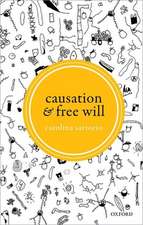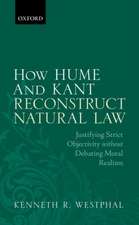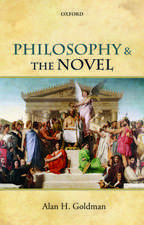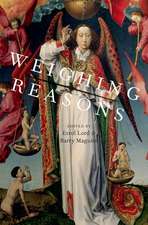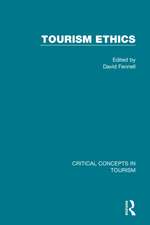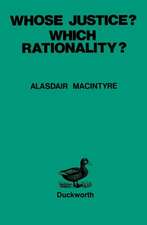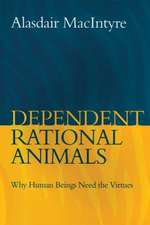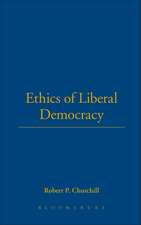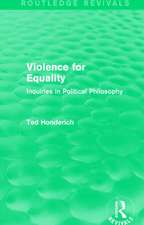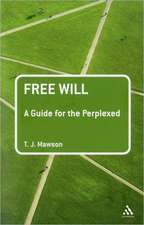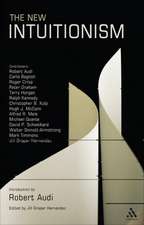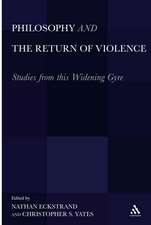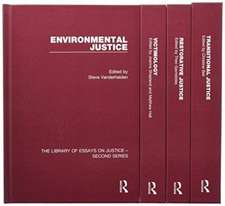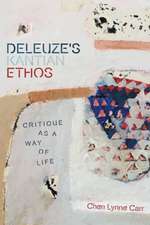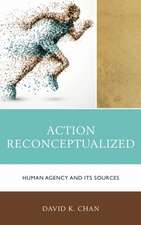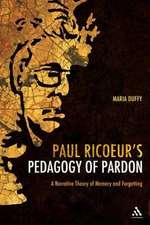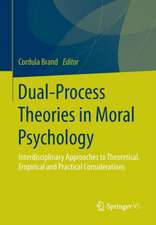Mary Midgley: An Introduction
Autor Gregory McElwainen Limba Engleză Hardback – 13 noi 2019
| Toate formatele și edițiile | Preț | Express |
|---|---|---|
| Paperback (1) | 166.36 lei 6-8 săpt. | +42.32 lei 6-10 zile |
| Bloomsbury Publishing – 13 noi 2019 | 166.36 lei 6-8 săpt. | +42.32 lei 6-10 zile |
| Hardback (1) | 496.21 lei 6-8 săpt. | |
| Bloomsbury Publishing – 13 noi 2019 | 496.21 lei 6-8 săpt. |
Preț: 496.21 lei
Preț vechi: 612.44 lei
-19% Nou
Puncte Express: 744
Preț estimativ în valută:
94.96€ • 97.25$ • 78.99£
94.96€ • 97.25$ • 78.99£
Carte tipărită la comandă
Livrare economică 19 martie-02 aprilie
Preluare comenzi: 021 569.72.76
Specificații
ISBN-13: 9781350047570
ISBN-10: 1350047570
Pagini: 232
Dimensiuni: 138 x 216 mm
Greutate: 0.41 kg
Editura: Bloomsbury Publishing
Colecția Bloomsbury Academic
Locul publicării:London, United Kingdom
ISBN-10: 1350047570
Pagini: 232
Dimensiuni: 138 x 216 mm
Greutate: 0.41 kg
Editura: Bloomsbury Publishing
Colecția Bloomsbury Academic
Locul publicării:London, United Kingdom
Caracteristici
Midgley collaborated directly with writing the book, which is the outcome of years of research, including six years of interviews - excerpts from these interviews provide lively, succinct perspectives, offering bonus insights beyond those of standard introductions
Notă biografică
Gregory S. McElwain is Assistant Professor of Philosophy and Religious Studies at The College of Idaho, USA. Mary Midgley was Senior Lecturer in Philosophy at Newcastle University, UK. One of the leading moral philosophers of the 20th century, Midgley has written extensively on human nature, science, ethics, animals, and the environment. Her books include Beast and Man, Heart and Mind, Animals and Why They Matter, Are You an Illusion? and Wickedness.
Cuprins
1. Introduction 2. Human Nature: The Roots of Midgley's Thought 3. Morality: How Do We Navigate This World?4. Science: Its Value and Its Misuses5. Animals: Why They Matter to Us6. Nature: Our Connection to the Whole7. Religion: Complexity and Challenges 8. Gender: Fragmentation and Unity 9. ConclusionBibliographyIndex
Recenzii
McElwain became a friend as well as an interpreter to Midgley over the decade he spent on this project. Midgley is compulsively quotable--a crucial skill for a popular philosopher and one of the delights of McElwain's book are the many quotations he includes, not only from across her enormous oeuvre, but also from years of interviews conducted at her home outside Newcastle.
An original and imaginative philosopher, Midgley (1919-2018) wrote with passion, wit, and clarity on a wide range of subjects . This introduction to Midgley's thought is admirably clear, accessible, wide-ranging, and sympathetic . Summing Up: Highly recommended. Lower- and upper-division undergraduates, graduate students, general readers.
McElwain offers a clear and lucid exploration of the philosophical concerns and contributions of the late Mary Midgley. Balancing depth and breadth, he engages and connects her views on ethical, environmental, feminist, and epistemological themes. Midgley emerges as a philosopher acutely sensitive to the possibilities for integration between the many aspects of human existence and the perils of their fragmentation. We should take from this book a richer understanding of Midgley and a deeper vision of the the role of philosophy in caring for ourselves and our world.
Mary Midgley is the ideal philosopher for those who believe nothing is simple, that human nature is both bestial and cultural, that gender is neither a construct nor biological destiny, that we are one with nature yet keen to be separate, that we are selfish and social at the same time. We can only love a philosopher who respects contradictions and embraces our animal nature. She will undoubtedly go down as one of the greatest we have ever had.
Mary Midgley deserves to be recognized as one of the most interesting and individual philosophical minds of the twentieth century. McElwain's book captures the personality of a thinker overflowing with ideas, buzzing with excitement and on a mission. Midgley retained the sense of wonder and mischief that characterizes childhood into her late 90s. She transforms that wonder into wisdom though her deep knowledge of philosophical method and history, and her serious study of human and animal nature. For Midgley, philosophers must be cartographers for their time, and this book provides those uninitiated into her complex and systematic philosophy with an invaluable map.
An original and imaginative philosopher, Midgley (1919-2018) wrote with passion, wit, and clarity on a wide range of subjects . This introduction to Midgley's thought is admirably clear, accessible, wide-ranging, and sympathetic . Summing Up: Highly recommended. Lower- and upper-division undergraduates, graduate students, general readers.
McElwain offers a clear and lucid exploration of the philosophical concerns and contributions of the late Mary Midgley. Balancing depth and breadth, he engages and connects her views on ethical, environmental, feminist, and epistemological themes. Midgley emerges as a philosopher acutely sensitive to the possibilities for integration between the many aspects of human existence and the perils of their fragmentation. We should take from this book a richer understanding of Midgley and a deeper vision of the the role of philosophy in caring for ourselves and our world.
Mary Midgley is the ideal philosopher for those who believe nothing is simple, that human nature is both bestial and cultural, that gender is neither a construct nor biological destiny, that we are one with nature yet keen to be separate, that we are selfish and social at the same time. We can only love a philosopher who respects contradictions and embraces our animal nature. She will undoubtedly go down as one of the greatest we have ever had.
Mary Midgley deserves to be recognized as one of the most interesting and individual philosophical minds of the twentieth century. McElwain's book captures the personality of a thinker overflowing with ideas, buzzing with excitement and on a mission. Midgley retained the sense of wonder and mischief that characterizes childhood into her late 90s. She transforms that wonder into wisdom though her deep knowledge of philosophical method and history, and her serious study of human and animal nature. For Midgley, philosophers must be cartographers for their time, and this book provides those uninitiated into her complex and systematic philosophy with an invaluable map.



